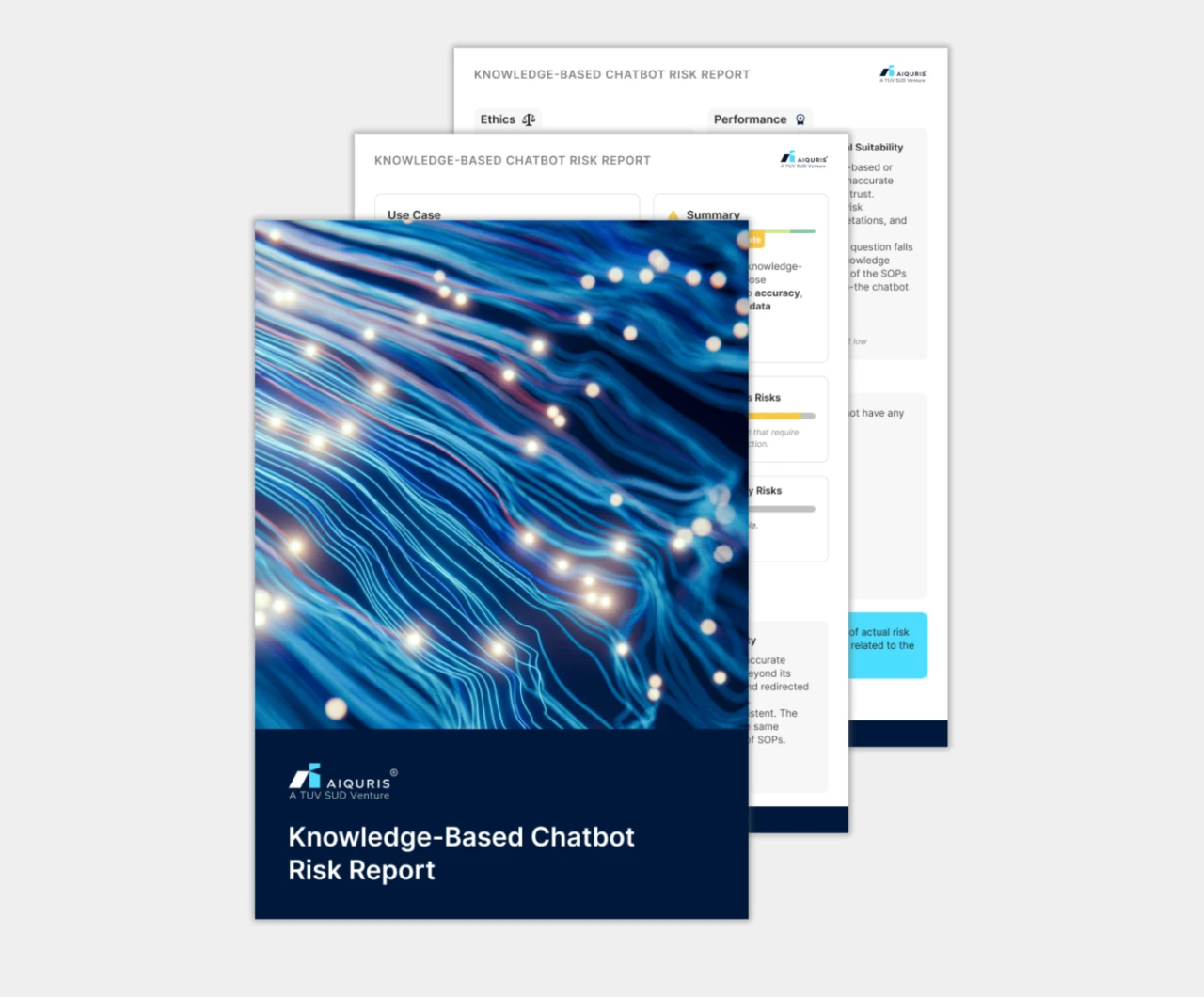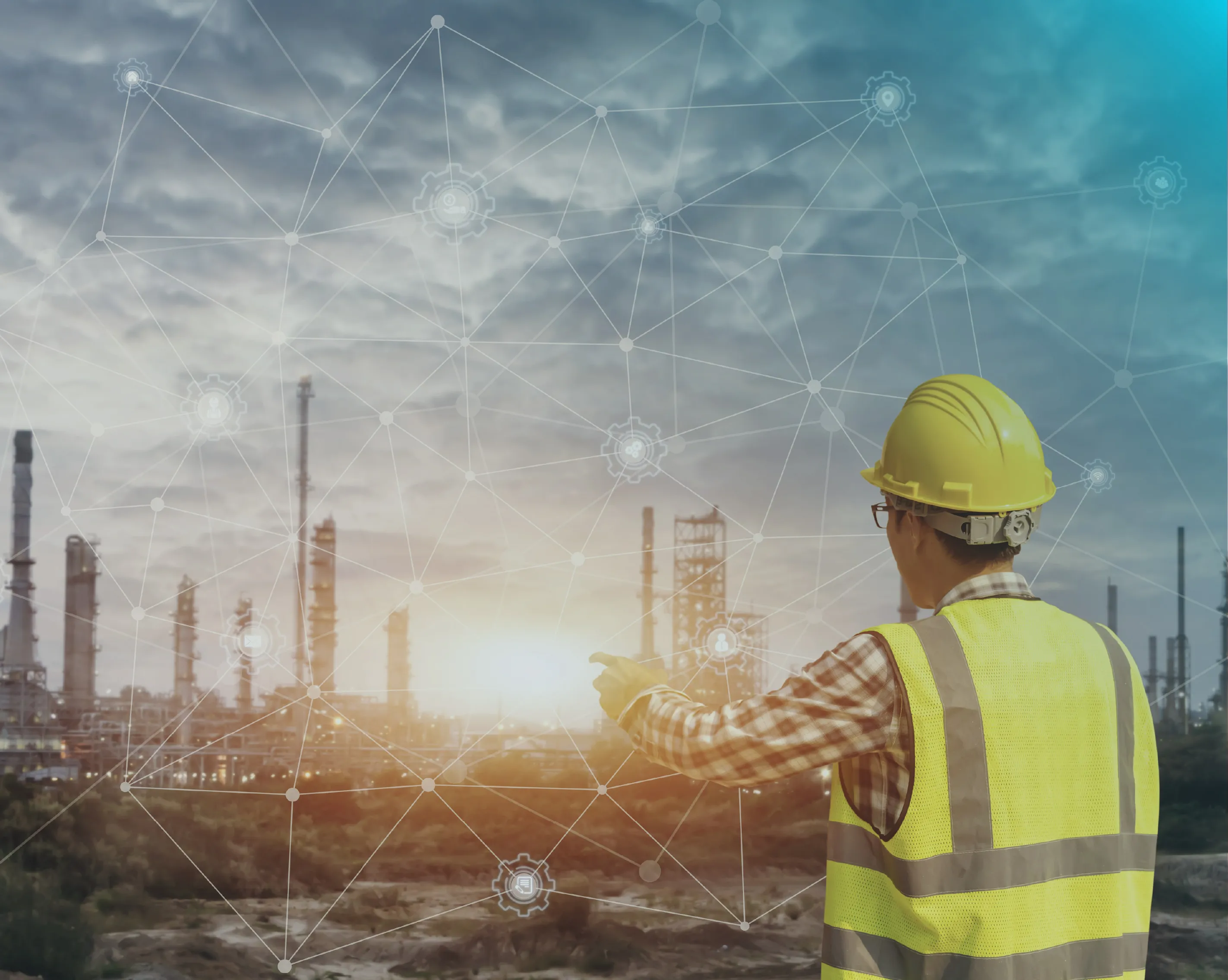Artificial Intelligence (AI) is revolutionising the oil and gas industry, particularly in the Middle East, significantly impacting safety protocols and exploration techniques. As organisations in this region face increasing pressures to improve efficiency while maintaining safety standards, the integration of AI technologies emerges as a vital solution.
In a recent podcast featuring Andreas Hauser, CEO of AIQURIS ®, and David Mugridge, an expert on oil and gas in the Middle East, they discussed how organisations should tackle the governance of AI. According to Mugridge, it is essential to adopt a holistic approach that balances technical oversight with robust governance structures. This ensures that AI systems not only inform human decision-making but also enhance operational safety (AIQURIS ® Podcast). He emphasised, "We shouldn't delegate our responsibilities when making decisions to AI"; instead, it should be part of a well-informed process designed for safe outcomes.
AI Impact on Oil and Gas Safety
The impact of AI on safety within the oil and gas sector cannot be overstated. With 75% of incidents attributed to human error (IOGP), AI offers a promising avenue to mitigate these risks. By leveraging accredited AI systems, companies can create safer work environments. Mugridge noted that using tested AI solutions could reduce workplace accidents by up to 30%, allowing human operators more time to make critical decisions without compromising safety.
Moreover, AI-driven monitoring solutions facilitate real-time data analysis, enabling swift identification of hazards such as leaks or equipment failures. This proactive approach transforms traditional reactive measures into a forward-thinking strategy that enhances overall operational safety.
AI in Oil and Gas Exploration
When it comes to exploration, Artificial Intelligence in oil and gas is equally transformative. Traditional methods rely heavily on manual processes that are often slow and prone to errors. In contrast, AI algorithms can analyse vast datasets rapidly, identifying potential drilling sites with higher accuracy. This capability not only speeds up the exploration phase but also reduces costs significantly. As highlighted in the podcast, integrating AI tools allows companies to streamline workflows, minimising exploration timelines dramatically—from months down to mere days (Ksolves).
A Culture of Trust in AI
Mugridge pointed out that building trust in AI systems is crucial. As AI continues to evolve, organisations must ensure that their implementations meet stringent quality requirements to leverage AI effectively. The conversation between Hauser and Mugridge reflects a broader trend toward embracing technology as a means to augment human capabilities rather than replace them. It is clear that AI's role in the oil and gas industry will grow, helping to identify risks previously unconsidered and prompting re-evaluations of operational practices.
To delve deeper into these insightful discussions and understand how AI can shape the future of safety and exploration in the Middle East oil and gas sector, we encourage you to listen to the full podcast episode here. Embracing AI is not just about adopting new technologies—it is about transforming the way we think about safety and efficiency in one of the most regulated industries globally.
Balancing the Benefits with the Risks of AI
While the potential for significant operational upside through AI in both exploration and safety within the Middle East's oil and gas sector is undeniable, it's crucial to acknowledge the inherent risks associated with its implementation. The promise of increased efficiency, reduced human error, and optimised exploration must be carefully weighed against the potential for significant negative consequences if AI systems are not thoroughly vetted and understood. Insufficient analysis of an AI system's quality, biases, or limitations can lead to flawed insights, inaccurate predictions, and ultimately, material damages. A rush to adopt AI without a comprehensive understanding of its capabilities and potential pitfalls can undermine safety protocols, misdirect exploration efforts, and result in substantial financial losses. This duality of AI's potential, both positive and negative, is also highlighted in a recent S&P Global article, which warns of the challenges the oil sector faces in balancing the benefits of AI with the potential drawbacks if not implemented carefully.
Before deploying any AI solution, organisations must conduct an in-depth analysis of the system. This includes rigorous testing, validation against established benchmarks, and a clear understanding of the data the AI was trained on. Bias in training data can lead to skewed results, potentially compromising safety or leading to unproductive exploration. Furthermore, the "black box" nature of some AI algorithms can make it difficult to understand how a particular conclusion was reached, hindering the ability to identify and correct errors. Transparency and explainability are crucial for building trust in AI systems and ensuring accountability.
The oil and gas industry operates in a complex and high-stakes environment. The decisions made based on AI insights can have far-reaching consequences, impacting not only operational efficiency but also the safety of personnel and the environment. Therefore, a cautious and measured approach to AI adoption is essential. Organisations must prioritise due diligence, investing in thorough testing and validation to ensure that the AI systems they deploy are reliable, accurate, and aligned with their specific needs and risk tolerance.
AIQURIS ® is uniquely positioned to assist oil and gas companies in navigating these challenges, through our comprehensive AI quality and risk analysis platform designed to help organisations understand the strengths and weaknesses of AI systems before deployment. Our expertise in AI allows us to provide tailored assessments that address the specific risks and opportunities associated with AI implementation in this sector. By partnering with AIQURIS ®, companies can confidently embrace the transformative power of AI while mitigating the potential risks, ensuring a safer and more efficient future for their operations.
If you have an AI use case in mind but you are unsure of the risks, quality, and suitability, you may talk to an expert.






